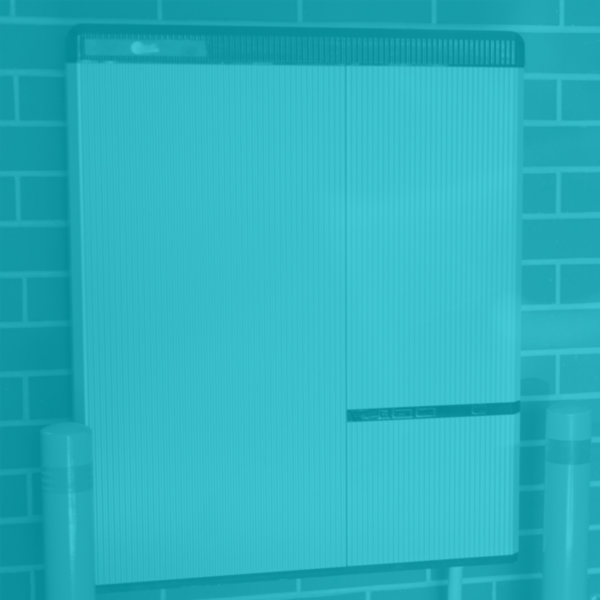
Innovation and Technical Evaluation
Domestic batteries and electric storage heaters in North Devon
More than one in ten households in North Devon are in fuel poverty, with many off the gas grid and relying on electric night storage heating. This system uses cheaper night-time electricity to heat up internal ceramic bricks which then release heat throughout the day. As well as being more expensive than gas central heating, users often find that the heat provided is inadequate, meaning that they also have to run supplementary heating during the day using peak-rate electricity. Any appliances that need used during daytime too, such as cookers, washers or medical equipment will also run off more expensive ‘on-peak’ electricity.
Domestic batteries have been available on the market for some time, and used to store excess electricity generated during the day by solar PV systems for later use in the evening. We could see that there was also potential to charge batteries from mains electricity using cheaper overnight tariffs, with the energy then available for householders to use throughout the day. This could be particularly beneficial for people on low incomes with high electricity bills.
So, in a UK first, NEA worked with North Devon Homes and SunGift to install Tesla Powerwall 2 batteries in eight NDH properties where they charged directly from the grid. Monitoring equipment was also fitted, and data on electricity consumption was obtained. Interviews were carried out with householders to assess satisfaction and collect information on patterns of energy use. A control group of three properties was also established.
The data demonstrated that substantial savings were achieved. For a high electricity consumer, the average savings were up to £1.21 per day, while a medium electricity consumer saved an average of £0.54 per day. Customers too felt they were spending less on their electricity bills and appreciated having more freedom to use their electricity when they wanted it. Other social landlords have now approached NEA for advice, with at least one planning on replicating the model.
If you take off peak tariff energy, store it and make it available at the time [customers] most want to use it there’s inevitably a saving. It works for customers, it works for the environment and it works for the organisation
Mark Rostock, North Devon Homes
RELATED
Info

